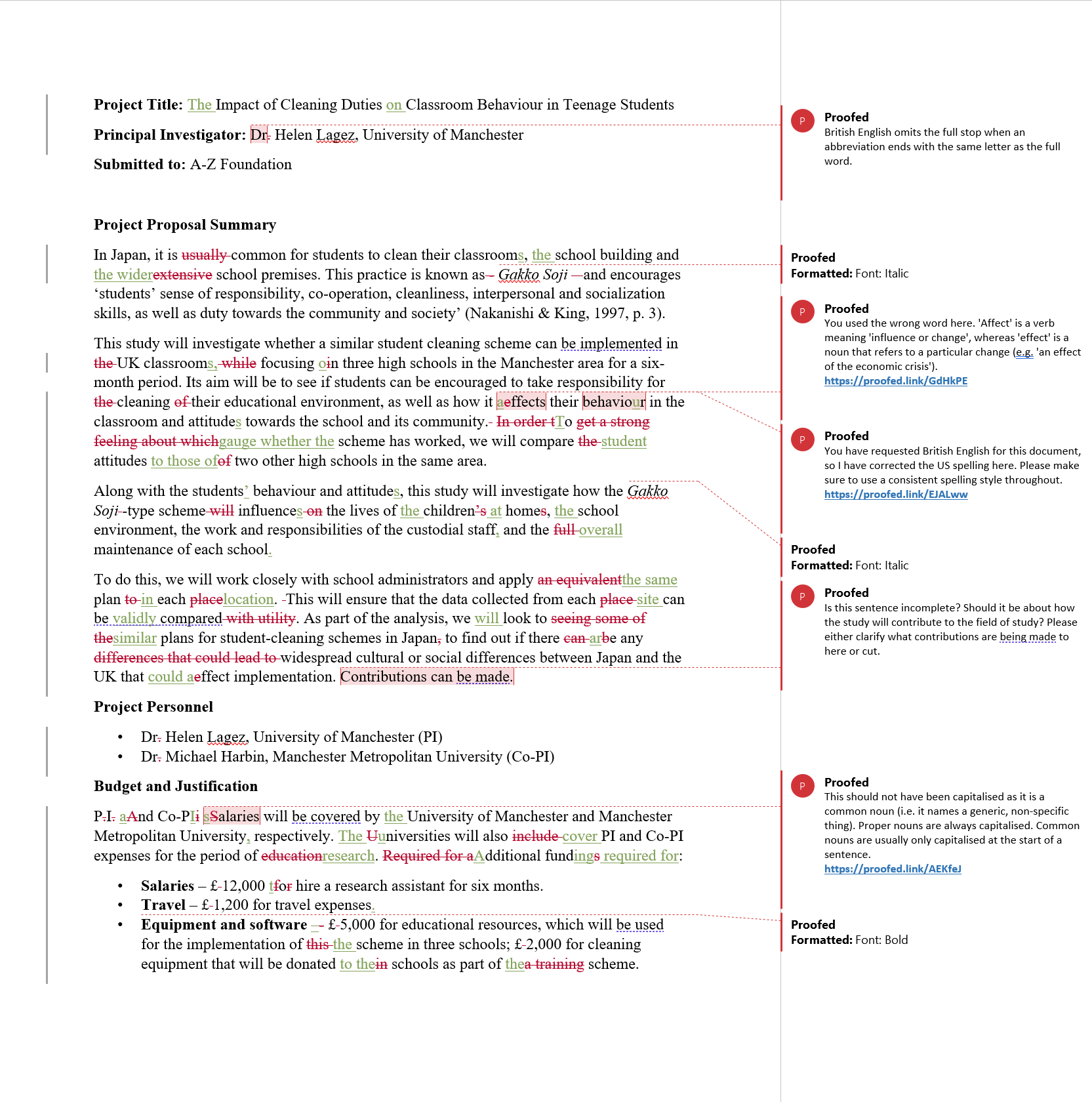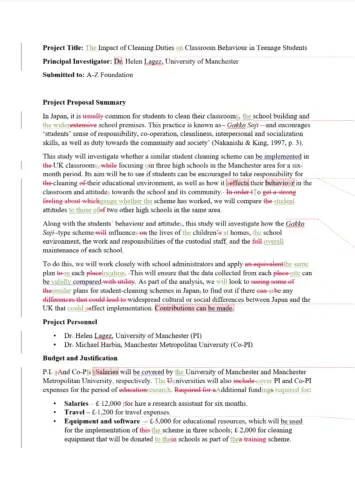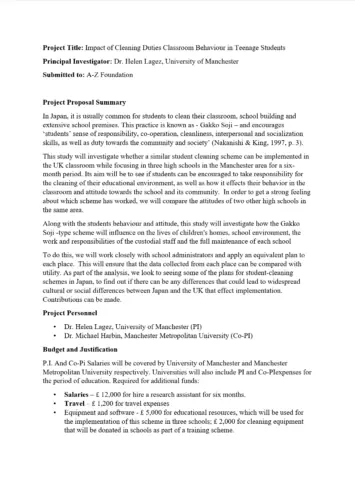
Research Proposal
Editing And Proofreading
Secure Funding For Your Research
Preparing A Research Proposal
From postdocs to professors, every academic researcher relies on funding at some point. But to secure it, you need a well-written research proposal. And that’s where our proofreading experts come in. We can make sure your proposal is error free and impactful, increasing your chances of impressing the funding board.
We also offer services for student research and non-academic grant proposals. Just let us know how we can help and we’ll do the rest.

Research Proposal
Proofreading
When you submit a research proposal, one of our expert editors will:
- Fix any spelling, grammar, and punctuation errors
- Check that the tone and language are academic throughout
- Look for issues related to clarity or consistency
- Make sure all sources are clearly referenced
- Leave helpful feedback on writing style in comments
You’ll then be able to download two copies of your research proposal:
- A ‘Clean’ copy in the original format
- A Track Changes copy saved as a Microsoft Word document
In this second copy, every change we make will be highlighted for review, ensuring you are in full control of the final draft. And we can adapt our process to suit your chosen file format, so let us know if you’re submitting your proposal as a PDF or LaTeX document.
Lightning-Fast
Delivery
You’ll never miss a deadline with our speedy services: our Next-Day Guarantee means we’ll return any document up to 10,000 words long within 24 hours
And if you need a faster turnaround, simply select your desired delivery speed when you submit your document. We have three options:
Regular
24 hours
Express
12 hours*
Rapid
3 hours**
We can also meet custom deadlines! Just let us know what you need.
*For documents up to 8,000 words
**For documents up to 3,000 words
How We Work With
Academics
Lightning-Fast
Delivery
You’ll never miss a deadline with our speedy services: our Next-Day Guarantee means we’ll return any document up to 8,000 words long within 24 hours.
And if you need a faster turnaround, simply select your desired delivery speed when you submit your document. We have three options
Regular
24 hours
Express
12 hours*
Rapid
3 hours**
We can also meet custom deadlines! Just let us know what you need.
* For documents up to 8,000 words
** For documents up to 3,000 words
Great Pricing
Our pricing is affordable and transparent – the cost is based on the exact length of your document. Check out our pricing calculator for an instant quote, and rest assured that you’ll receive the highest quality proofreading and editing for the best value on the market.
Referencing Expertise
Our team includes experts in various referencing styles and systems, including AMA, APA, MLA, Chicago, Harvard, Vancouver, and IEEE. No matter what style you’re using, though, we can check that your citations and references are correct and let you know if any information is missing. Visit our referencing page to learn more.
Subject-Matter
Experts
Our team includes over 750 professional editors with backgrounds in a wide range of disciplines, so we’ll always match you with the best editor for your writing, whether you need help with a sociology dissertation, handouts for a music theory lecture, or a biology research paper.
24-Hour
Support
Our support team is available around the clock to address any concerns or questions you have about your order. This means you’ll never be left in the dark, no matter where you are or what time it is.












